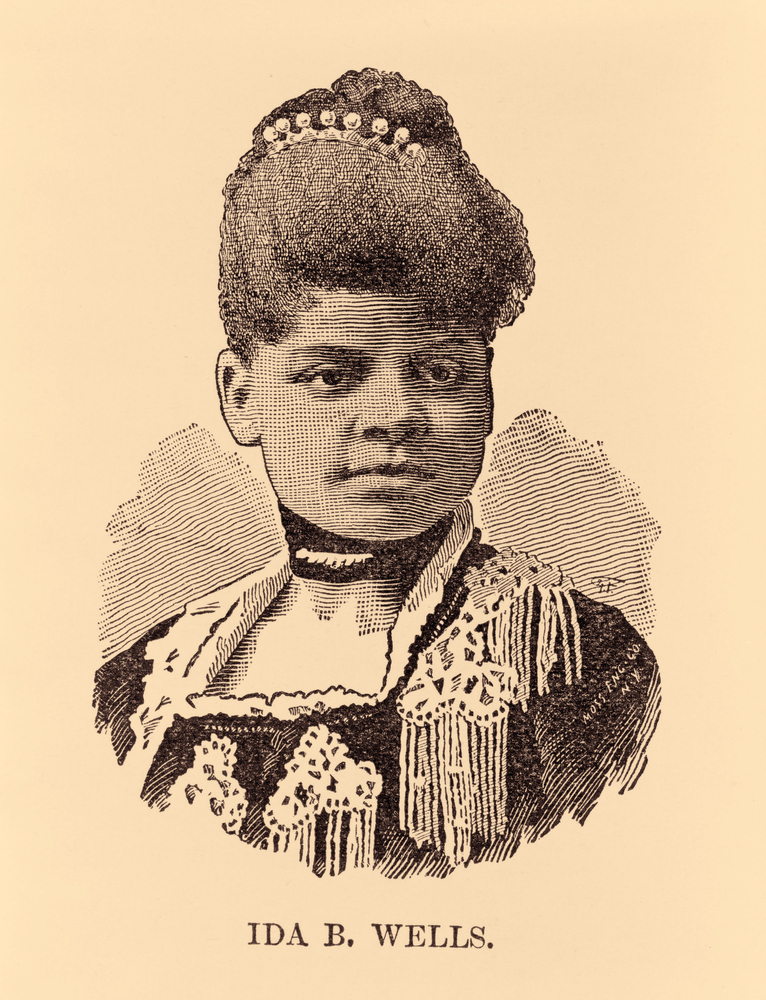Ida B. Wells was a formidable force in American history, renowned for her relentless fight against racial injustice and her pioneering role in both the civil rights and women’s suffrage movements. This biography examines the life of Ida B. Wells, delving into her early years, her courageous advocacy against lynching, and the enduring impact she has left on society.
Who Was Ida B. Wells?
Ida B. Wells was a pioneering African American journalist, civil rights leader, and suffragist whose work laid critical groundwork for the Civil Rights Movement. Born into slavery on July 16, 1862, in Holly Springs, Mississippi, Wells grew up during the Reconstruction era, a time of significant social upheaval and transformation in the United States. Despite facing systemic racism and sexism throughout her life, she emerged as a powerful voice advocating for equality and justice.
Wells began her career as a teacher but quickly found her calling in journalism. She became known for her investigative reporting on the lynching of African Americans in the South, an issue largely ignored by mainstream media at the time. Her fearless exposés brought national attention to these atrocities and challenged public perceptions about racial violence.
In addition to her work as a journalist, Ida B. Wells was an ardent suffragist who fought tirelessly for women’s right to vote. She was one of the founding members of the National Association for the Advancement of Colored People (NAACP) and played a crucial role in organizing anti-lynching campaigns across America.
Throughout her life, Wells faced numerous threats due to her activism but remained undeterred in her pursuit of justice. Her legacy is one of courage and resilience, a testament to what can be achieved through unwavering dedication to human rights. Today, Ida B. Wells is remembered not only as a trailblazer in journalism but also as an indomitable force in America’s ongoing struggle for civil rights and equality.
The Early Life and Education of Ida B. Wells

Ida B. Wells was born into a world of tumultuous change on July 16, 1862, in Holly Springs, Mississippi. Her early life was shaped by the profound transformations occurring in America during the Reconstruction era. As the daughter of James and Elizabeth Wells, who were both enslaved until the Emancipation Proclamation, Ida’s childhood was deeply influenced by her parents’ resilience and determination to seek a better life for their children.
From an early age, Ida exhibited a keen intellect and a fierce spirit that would later define her career as a pioneering journalist and activist. Her education began at Shaw University (now known as Rust College) a historically black college in her hometown. This institution played a crucial role in shaping her educational background by providing an environment where she could thrive academically despite the racial barriers of the time.
The influence of Ida’s family cannot be understated; they instilled in her values of justice and equality that fueled her lifelong crusade against injustice. Tragically, both of Ida’s parents succumbed to yellow fever when she was just 16 years old, thrusting her into adulthood prematurely as she took on the responsibility of caring for her younger siblings.
Despite these challenges, Ida B. Wells continued to pursue education with tenacity and eventually became a teacher herself, a testament to her unwavering commitment to learning and empowerment through knowledge. Her early experiences laid the foundation for what would become an extraordinary legacy in advocating for civil rights and social change.
Ida B. Wells’ Battle Against Lynching (A Fearless Crusader for Justice)
Ida B. Wells stands as a pivotal figure in the fight against racial injustice, particularly through her relentless anti-lynching campaign. Her work as an investigative journalist brought to light the horrific realities of lynching in America, challenging the widespread acceptance and silence surrounding these brutal acts. In her groundbreaking pamphlet, “Southern Horrors,” Wells meticulously documented lynching facts, exposing the falsehoods used to justify these crimes and highlighting their true nature as tools of racial terror.
Through detailed research and fearless reporting, Wells debunked myths that portrayed lynchings as necessary responses to crime. Instead, she revealed how they were often perpetrated against African Americans who posed economic or social threats to white supremacy. Her efforts not only informed but also galvanized both national and international audiences, fostering a growing awareness and activism against such injustices.
Wells’ work laid the foundation for future civil rights movements by demonstrating the power of truth-telling and advocacy in confronting systemic racism. Her legacy continues to inspire modern-day journalists and activists committed to justice and equality.
The Impact of Ida B. Wells on Civil Rights and Women’s Suffrage Movements
Ida B. Wells stands as a towering figure in the history of civil rights activism and women’s suffrage advocacy. Her pioneering efforts laid crucial groundwork for future generations striving for equal rights. Born into slavery in 1862, Wells rose to prominence through her fearless journalism and relentless campaigning against racial injustice and gender inequality.
As a staunch advocate for civil rights, Wells was instrumental in exposing the horrors of lynching in America. Her investigative journalism brought national attention to these atrocities, challenging both the media and public perceptions of racial violence. This work not only highlighted the systemic oppression faced by African Americans but also galvanized support for broader civil rights reforms.
In addition to her contributions to civil rights, Ida B. Wells was a formidable force in the women’s suffrage movement. She recognized that true equality could not be achieved without addressing both race and gender discrimination, advocating tirelessly for African American women’s right to vote. As one of the founding members of the National Association for the Advancement of Colored People (NAACP), she helped shape an organization that remains pivotal in fighting racial discrimination today.
Wells’s legacy as an equal rights pioneer is characterized by her unwavering commitment to justice and equality, inspiring countless activists who followed in her footsteps. Her life’s work underscores the interconnectedness of racial and gender equality struggles, reminding us that progress requires courageously confronting all forms of discrimination.
The Legacy of Ida B. Wells in Modern America
Ida B. Wells, a pioneering journalist and civil rights advocate, left an indelible mark on modern America through her relentless pursuit of justice and equality. Her legacy continues to resonate today, influencing both the fields of journalism and civil rights activism.
Wells’s historical impact on journalism is profound; she was one of the first to document the horrors of lynching in America with meticulous research and powerful narratives that challenged societal norms. Her fearless reporting laid the groundwork for investigative journalism as we know it today, inspiring countless journalists to pursue truth and accountability with courage.
In terms of civil rights, Wells was a trailblazer who fought against racial injustice long before the Civil Rights Movement gained momentum in the mid-20th century. Her advocacy for African American rights set important precedents that continue to guide activists fighting for equality across various platforms.
The legacy and influence of Ida B. Wells are also celebrated through numerous awards and honors bearing her name. These accolades recognize outstanding contributions to journalism and social justice, perpetuating her mission by encouraging new generations to uphold her principles of integrity and fairness.
Today, Ida B. Wells remains a symbol of resilience and determination in the face of adversity. Her life’s work serves as a powerful reminder that one individual’s voice can indeed spark significant change, encouraging us all to continue striving for a more just society.
Lesser-Known Facts About Ida B. Wells That You Should Know
Ida B. Wells is widely celebrated for her relentless crusade against lynching, but there are numerous lesser-known aspects of her life that also deserve attention. Beyond her anti-lynching efforts, Wells was a pioneering journalist and an early leader in the civil rights movement, whose achievements laid the groundwork for future generations.
One interesting fact about Ida B. Wells is her role as a founding member of several significant organizations. She was instrumental in establishing the National Association of Colored Women (NACW) in 1896 and the National Association for the Advancement of Colored People (NAACP) in 1909. These organizations played crucial roles in advocating for African American rights and women’s suffrage.
Another untold story from her life involves her work as a teacher at Rust College and later at a segregated public school in Memphis, Tennessee. Her experience with discrimination within these educational systems fueled her activism against racial injustice.
Additionally, Wells was an accomplished writer who owned and edited multiple publications throughout her career. Her newspaper, The Memphis Free Speech, became an influential platform for discussing racial issues and advocating for social change.
These facets of Ida B. Wells’ life highlight not only her dedication to fighting racial violence but also underscore her broader contributions to journalism, education, and civil rights advocacy.
Celebrating the Life and Legacy of a Trailblazer in Social Justice – Why We Remember Ida B. Wells Today
Ida B. Wells remains a monumental figure in the history of social justice, her legacy continuing to inspire generations of activists and advocates. As a pioneering journalist, educator, and early leader in the civil rights movement, Wells dedicated her life to combating racial injustice and advocating for equality. Her fearless reporting on lynching in the United States brought national attention to the pervasive violence against African Americans at a time when such topics were often ignored by mainstream media.
Wells’ work transcended journalism; she was also a co-founder of several civil rights organizations, including the National Association for the Advancement of Colored People (NAACP). Her relentless pursuit of justice laid the groundwork for future movements that continue to fight systemic racism and inequality today.
Remembering Ida B. Wells is crucial not only because she challenged societal norms but also because her life’s work exemplifies how one person’s courage and determination can ignite significant change. Her legacy serves as both a reminder of past struggles and an inspiration for ongoing efforts toward social justice. Celebrating her life encourages us to reflect on our current challenges and motivates us to continue advocating for a fairer, more equitable world.


